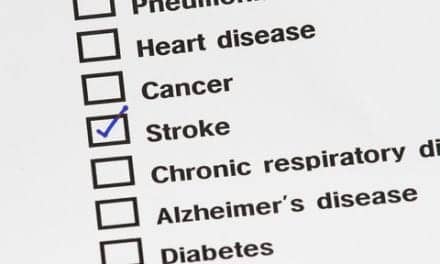Last Updated: 2008-04-08 11:05:48 -0400 (Reuters Health)
NEW YORK (Reuters Health) – In stroke survivors, impaired expressive communication and the level of disability in personal activities of daily living are predictors of emotional distress, results of a study published in the April issue of Stroke suggest.
"Emotional distress is common after stroke," Dr. Shirley Thomas and Dr. Nadina Lincoln from the University of Nottingham, UK, write. "It is important to identify risk factors for emotional distress after stroke to improve the detection of distress and provide appropriate interventions for distress to improve outcomes."
In a prospective study, the researchers examined factors associated with emotional distress in 100 patients who remained hospitalized at 1 month after stroke. The patients were assessed on measures of communication impairment using the Sheffield Screening Test and on personal activities of daily living using the Barthel Index. Emotional distress was assessed using the Visual Analogue Self-Esteem Scale (VASES).
Of the 100 patients, 92 were reassessed on the same measures 6 months after stroke. In addition, these patients were assessed on measures of extended activities of daily living using the Nottingham Extended Activities of Daily Living Scale.
Overall, 21 of the patients were classified as having aphasia.
Results of multiple linear regression analyses demonstrated that expressive communication impairment and dependence in personal activities of daily living were significant predictors of emotional distress at 1 month post-stroke.
Significant predictors of emotional distress at 6 months after stroke included expressive communication impairment, emotional distress at 1 month after stroke, and having a more severe stroke.
No association was observed between demographic factors or side of lesion and distress.
"The finding that expressive communication impairment was related to distress supports the importance of including patients with aphasia when screening for mood problems after stroke and also that interventions are needed that are appropriate for patients with communication impairments," Drs. Thomas and Lincoln conclude.
Stroke 2008;39:1240-1245.
Copyright Reuters 2008. Click for Restrictions




